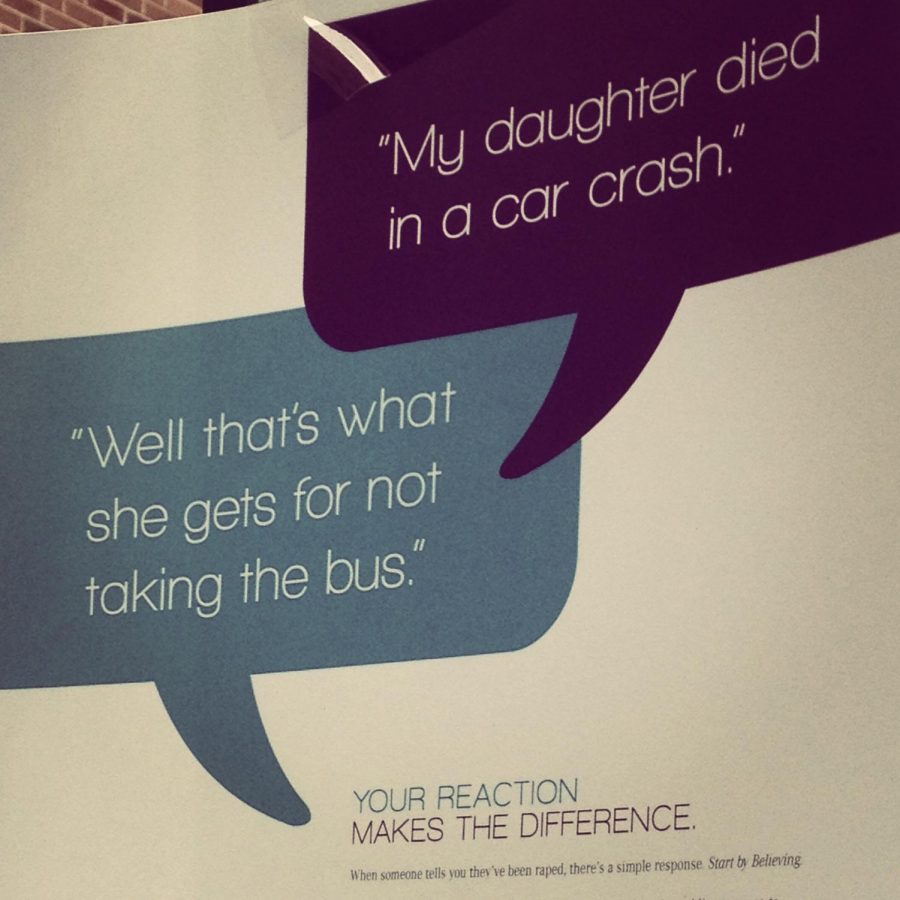Professionals say society uses sexual terms interchangeably, inaccurately
January 9, 2014
The difference between rape and sexual assault is often confused by college students.
“The definition of sexual assault is very broad and includes rape. However the laws differ from state to state,” said Sharon Bryant, sexual harassment/assault response prevention program manager and certified sexual assault coordinator.
Alabama state law classifies rape under sexual offenses, according to the Criminal Code of Alabama.
“Sexual assault is a crime defined as intentional sexual contact, characterized by the use of force, physical threat or abuse of authority or when the victim does not or cannot consent,” Bryant said. “Consent is the permission for something to happen or an agreement to do something. Consent should not be deemed or construed to mean the failure by the victim to offer physical resistance.”
There are several different types of sexual assault; nonconsensual sodomy, indecent assault and rape are all categorized under sexual assault, he said.
“I think some people get sexual assault and rape confused, I also think a lot of people don’t understand that it is a serious offense,” said sophomore Zachary Brasfield.
People use the terms synonymously, which leads to confusion, Bryant said.
“The terms can get confusing since each state often uses different words to mean the same thing or use the same words to describe different things,” Bryant said.
In a study of sexual violence conducted by the Center for Disease Control and prevention, 19 percent of undergraduate women experienced attempted or completed sexual assault since entering college.
“As a society, we allow sexual assault and rape to happen,” Bryant said. “We all have a responsibility to take action to change our culture and eliminate this ‘enemy’ from society. On average some people feel that the more sexual partners they have, the more popular their peer status will become. This can be acceptable as long as it is consensual sex.”
People on campus know what rape and sexual assault are, but they don’t know much about it, said freshman Karkethia Gamble.
“I think of rape and sexual assault is like HIV and AIDS,” Gamble said. “You know about it, but you don’t really know about it.”
If you educate people on what exactly rape and sexual assault is, they would start to realize they should say something about it when they see it or even try to stop it, Brasfield said.
Many colleges have begun campaigns against rape culture and sexual violence.
“Spreading of information is always the way to educate people,” Said Emily Kelley, coordinator for Women’s studies. “You have to go on a pretty all inclusive campaign to educate people. It can’t just be a spot here and a spot there.”
There is a mandatory alcohol education for freshman called AlcoholEdu but the program does not go in depth regarding information about rape or sexual assault involving alcohol.
“The same way incoming freshman are required to take the Alcohol Edu class, they should also have to take a class about rape and sexual assault,” said freshman Chelsi Marshall.
A great way to help stop Rape and Sexual Assault on campuses is to provide sexual harassment and sexual assault training that is relevant and relatable to the student population, Bryant said.
UNA offers empowerment-based self-defense courses called Rape Aggression Defense (RAD) through the UNA police department.


